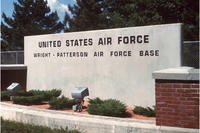WASHINGTON – Just hours after a deal last month allowing the U.S. to use Turkey’s air bases to launch sorties against ISIS, Turkey pulled a move that left American military leaders surprised and outraged, and raised questions about the two nations' alliance in the war on the jihadist army.
With only 10 minutes notice to their American partners, Turkey launched a massive air strike of its own July 24 against a Kurdish militant group in the northern mountains of Iraq. The U.S. had barely enough warning to make sure its own forces were out of the way, according to a military source with knowledge of the tension Turkey's attack caused in the Combined Air and Space Operations Center, the allied headquarters in the air war against ISIS.
"A Turkish officer came into the CAOC, and announced that the strike would begin in 10 minutes and he needed all allied jets flying above Iraq to move south of Mosul immediately,” said the military source, describing events that took place in the center, in a secret location in the Middle East. "We were outraged."
In addition to targeting forces engaged in the fight against ISIS, U.S. officials believed the Turkish military's sudden move raised the risk of friendly-fire casualties.
“We had U.S. Special Forces not far from where the Turks were bombing, training Kurdish Peshmerga fighters," the source said. "We had no idea who the Turkish fighters were, their call signs, what frequencies they were using, their altitude or what they were squawking [to identify the jets on radar].”
When the Turkish officer returned the next day to inform his international partners of another strike, U.S. military officials made their objections clear. The Turkish liaison officer was sent away, but not before a back-and-forth in which U.S. leaders demanded specific flight plans of the attacking Turkish warplanes and the Turkish officer sought the locations of the U.S. trainers.
The coalition Air Force officers in the ops center refused to share the sensitive information.
“No way we were giving that up,” said the military source. “If one of our guys got hit, the Turks would blame us. We gave the Turks large grids to avoid bombing. We could not risk having U.S. forces hit by Turkish bombs.”
Critics of the new agreement between the U.S. and Turkey say the deal gives Ankara cover to carry out strike missions against Kurdish fighters in Iraq and even Syria, where Kurds have won hard-fought gains against ISIS. While the Kurdish fighters have been remarkably effective fighting the terrorist army, Turkey remains their nemesis and fears the recent expansion of Kurdish control along the border could provide Kurds more incentive to form their own country in the future.
The target for the initial Turkish air strike was the headquarters of the Kurdistan Workers’ Party, or PKK, a radical leftist group located in northern Iraq which has carried out a 30-year insurgency against Turkey, killing, by some estimates, as many as 40,000 people. The Marxist-Leninist inspired PKK has been declared a terrorist organization by the U.S. government and many European nations.
But the PKK’s Syrian affiliate has been the leading ground force against ISIS in Syria, and a close ally of the U.S. military. The Kurdish People’s Protection Units, or YPG, as this Syrian Kurdish force is called, has enabled U.S. warplanes to effectively strike ISIS in Syria. In Iraq, Kurdish Peshmerga fighters, separate from the PKK and YPG, have been praised by many U.S. lawmakers for their success in fighting ISIS.
By striking the Kurds, NATO-ally Turkey may have opened a new front in the war, against the PKK. U.S. military analysts' fears that that war could blow back on the U.S. and Turkey may have been realized Monday, when two women opened fire on the heavily guarded U.S. Consulate in Istanbul and a car bomb went off outside a Turkish police station nearby.
In southeast Turkey Monday, a roadside bomb killed four Turkish police and gunmen fired on a Turkish military helicopter killing one soldier.
The string of attacks comes one day after six U.S. F-16s landed at Incirlik airbase in Southeast Turkey along with 300 U.S. military personnel, following the Turks' agreement to lend their bases to the U.S. after a year of resisting American requests. U.S. jets will now only have a 30-minute flight to strike ISIS, saving valuable time and fuel.
The Turkish government has been concerned that the U.S. fight against ISIS would embolden the Kurds, who now control most of Turkey's 560-mile border with Syria except for a small 68-mile corridor between the Syrian border towns of Kobani and Azaz, west of the Euphrates River. Should the Kurds gain control of this section of the border they would have unfettered access from Iraq through Syria all the way to the Mediterranean.
A military source confirmed that Turkish tanks fired on YPG units to keep them from entering this 68-mile area, killing some YPG fighters allied with the PKK in northern Iraq. These fighters have helped the U.S. coalition secure gains against ISIS on the ground near Tal Abyad and Kobani and are the key to the coalition moving on the ISIS capital, Raqqa.
A senior defense official told Fox News that another reason the Turks want to keep Kurdish fighters outside of the 68-mile border is to prevent the Kurds from potentially selling their oil on the open market from ports along the Mediterranean.
“The ‘safezone’ was Turkey’s way of preventing a complete takeover of the [Turkish-Syrian] border,” said the official. “Turkey doesn’t want to eliminate ISIS, they want to prevent the Kurds from a complete takeover of the border. They need U.S. help to do this.”
U.S. officials have rejected Turkish requests to set up a safe zone of any sort in northern Syria. Senior U.S. military leaders have privately expressed frustration that the recent Turkish air strikes against the Kurds could jeopardize the entire anti-ISIS operation. Publicly, Obama administration officials say Turkey has a right to defend itself.
Turkey so far has ignored U.S. concerns about opening this new front, and despite the Kurds' invaluable help fighting ISIS, sees "no difference" between the PKK and ISIS, according to Turkish Foreign Minister Mevlut Cavusoglu.
There are 14 million Kurds in Turkey, approximately half of the 30 million concentrated across the Middle East including Iraq, Iran and Syria. The Kurds form one of the world’s largest ethnic populations without its own country.
“[Turkey’s] attacks on PKK are a result of attacks they are suffering by this terrorist group inside Turkey,” State Department spokesman John Kirby said Monday.




























